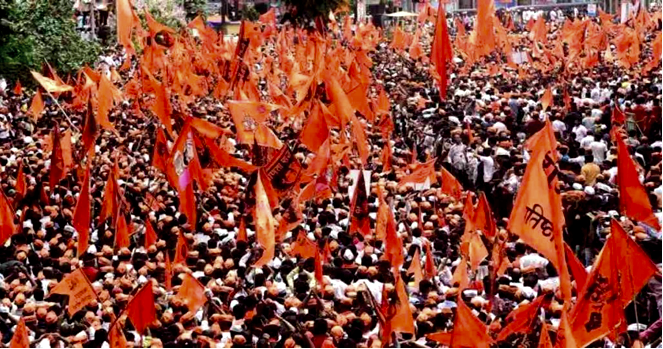Kuttayudh – Why the art of covert war is the need of the hour (Part 2)


Covert War is everything which is not openly conflictual, and is applied to demoralise, unhinge and limit the options of the adversaries. In the modern era, psychological warfare is now the medium of technology. During the first world war, many aware of the MI 5 and MI 6, but not many know about the MI7B who wold airdrop propaganda pamphlets at the German trenches, to bring down the morale of the soldiers. The second world war MI7B counterpart was Churchill’s Political Operations Executive (POE) body. A number of movies have been made on the events that took place during that period, and one of the finest out of these was Darket Hour, released in 2017. The job of this unit was to make fraudulent war details and battle formation plans, and let the Germans have the blurprints of these.
Despite of having detailed descriptions of how to carry out covert warfare in the Vedas, India has had a non existing presence in the area. Not only has it been absent from the front, but it has let China create a larger than life image of Pakistan, presenting it convincingly as a difficult enemy. India has been successful in having ample presence in Pakistan owing to the synchretic culture. as part of its covert war mechanism. Pakistan and India both may have sleeper cells in the respective countries, but India is simply too vast for Pakistan to have a large scale impact in this area. Pakistan’s ISI rules the country and in part, the Pakistan Army too. Therefore the covert operations carried out by Pakistan have not only been more unified and singularly focused, but way more ruthless as compared to India. The main reason for this is, no matter how much we may detest it, the scripture and its followers are solely focused on various methods of war. The manifesto of Pakistan’s Army is based on the scripture, and 80% of the middle and lowers cadres as well as more than half of the top cadres are ardent followers of the scripture. Indian Army on the other hand has always been more secular, with a vision to serve for the nation above and beyond differences of faith. The perception of the nation has been one of nation state instead of that of a Rashtra, and here lies the folly. Having said that, during the war of 1965, the Indian Army realised how the Pakistan Army personnel sitting inside tanks were afraid of being burnt, and so after the very first shot, they would get out and run away. The reason behind this, was that the scripture talks extensively about the ever burning fire of Jahannum, and that it is pertinent for their faith to be buried, not burned. So the Indian Army would repeatedly remind them in their shared radio frequency of how they can be burned alive, die as a Kafir, and this tactic worked very well. They Pakistanis were so scard of dying a Kafir’s death, that India was able to capture a total of 75 tanks which were abandones by the personnel sitting in them. Lieutenant General Harbaksh Singh has mentioned this in his conversation with renowned security expert, Sri Bharat Karnad.
Compared to Pakistan, covert and psych operations have been that much more complex as far as Indo China equation is concerned, and the language barrier is one of the reasons. The Chinese have successfully used their complex language with 2600 pictorial characters, and we as Indians have usually taken the easier route of depending on the western interpretation of the Chinese narrative, which serves primarily to their purpose and not ours. Additionally, the elite of India have been influenced with English so much, that we have long stopped taking pride in, and using to our benefit, our own dialects in diplomatic and political exchanges. The Chinese have learned tremendously about out cluture and language nuances courtesy Bollywood (Aamir and ShahRukh Khan movies), as well as their constant presence in Pakistan. As far as the interest of Chinese people in our culture goes, the Peking University has been teaching Sanskrit for the last 100 years. Additonally, the Chinese Buddhist monks are said to have translated Sanskrit text into the local dialects more than 2000 years ago. Hindi is taught in many universities there, and they pay high salaries to Indian teachers. All of this comes in handy in non conforntational warfare. That we have S Jayashankar in our arsenal now, who can speak Mandarin fluently, is definitely is a way to unhinge them in their own language.
Final Part to follow
To read Part One, please click on the link below
Kutayuddh – Why the art of covert warfare is the need of the hour (Part 1)
DISCLAIMER: The author is solely responsible for the views expressed in this article. The author carries the responsibility for citing and/or licensing of images utilized within the text.
